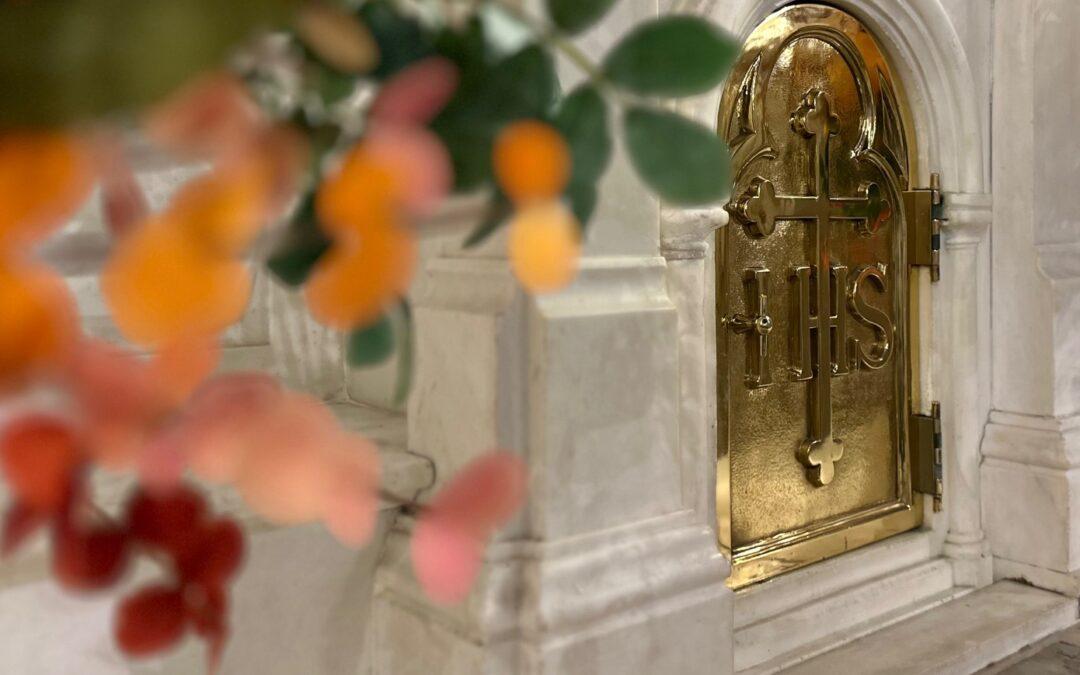Dear Friends,
Today we celebrate the Solemnity of Christ the King. It is one of the newer feasts in the Catholic Church. It was established by Pope Pius XI in 1925. The pope was witness to a turbulent time in the world’s history. World War I had torn apart Christian countries and many lives had been lost as Christians fought one another. Secularism was on the rise and dangerous dictatorships were emerging in Europe and beyond. Christ had long been referred to as King, but Pope Pius and the Christian faithful saw the respect and reverence for Christ’s authority waning in the midst of the unrest during the first part of the 20th century. In response, the feast was set with the desire to reaffirm and refocus faith with respect to the kingship of Jesus.
Pope Pius XI wrote in Quas Primas when establishing this feast day:
“When once men recognize, both in private and in public life, that Christ is King, society will at last receive the great blessings of real liberty, well-ordered discipline, peace and harmony. Our Lord’s regal office invests the human authority of princes and rulers with a religious significance; it ennobles the citizen’s duty of obedience. It is for this reason that St. Paul, while bidding wives revere Christ in their husbands, and slaves respect Christ in their masters, warns them to give obedience to them not as men, but as the vicegerents of Christ; for it is not meet that men redeemed by Christ should serve their fellow-men. ‘You are bought with a price; be not made the bond-slaves of men.’
If princes and magistrates duly elected are filled with the persuasion that they rule, not by their own right, but by the mandate and in the place of the Divine King, they will exercise their authority piously and wisely, and they will make laws and administer them, having in view the common good and also the human dignity of their subjects. The result will be a stable peace and tranquility, for there will be no longer any cause of discontent.
Men will see in their king or in their rulers men like themselves, perhaps unworthy or open to criticism, but they will not on that account refuse obedience if they see reflected in them the authority of Christ God and Man. Peace and harmony, too, will result; for with the spread and the universal extent of the kingdom of Christ men will become more and more conscious of the link that binds them together, and thus many conflicts will be either prevented entirely or at least their bitterness will be diminished.”
So, Pope Pius XI was hoping for these effects to occur: 1. Nations would see that the Church has the right to freedom from the state. 2. That leaders and nations would see that they are bound to give respect to Christ. 3. That the faithful would gain strength and courage as we are reminded that Christ reigns in our hearts, minds, wills, and bodies.
Pope Pius wanted us to know that Jesus’ kingship is unlike any other by nature and by behavior. Jesus’ kingdom is not of this world and does not involve armies or peace treaties or diplomats. Jesus is already the ruler of the earth because he is the ruler of eternity.
The feast was initially fixed to the final day of October; the day before All Saints Day. Later, in 1969, Pope Paul VI moved the feast to the last Sunday before Advent to emphasize the importance of the feast. This is fitting within the Church year. The liturgical year begins with Advent, the season of awaiting the coming of Christ, and now the liturgical year ends with celebrating the Kingship of Christ.
We must never despair then of the things of this world for Christ is our king – already. Celebrating this feast day may Christ truly become the king of your hearts so that one by one, person by person, the world will be transformed into a place where we live as brothers and sisters – children of the true king!
Peace,
Fr. Damian



